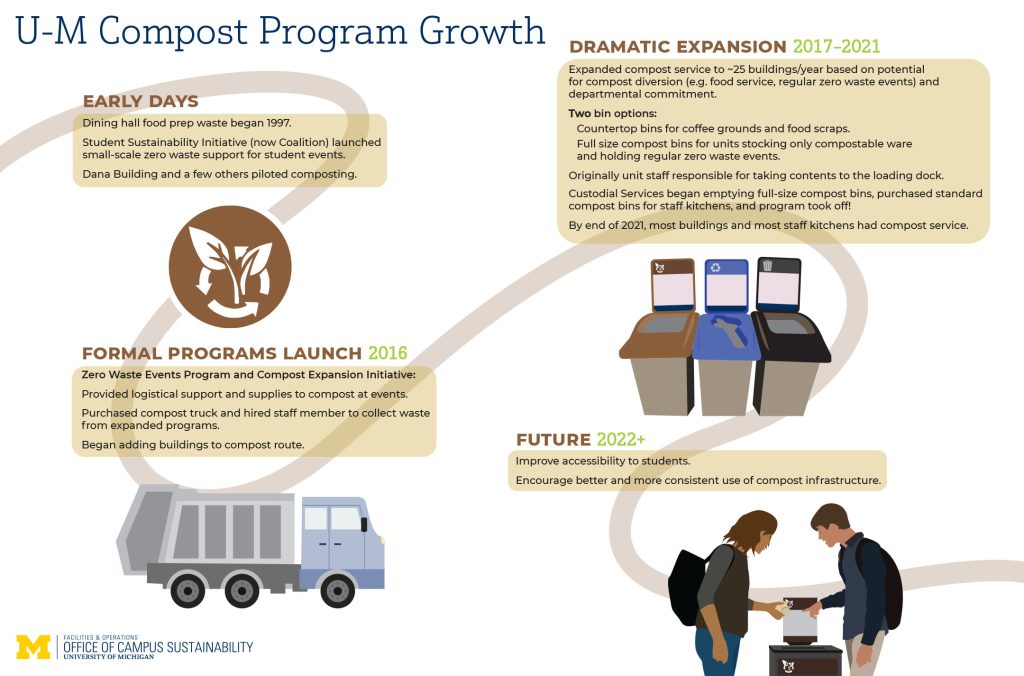What is Composting?
Composting turns organic material, such as food, into high quality soil by letting it decay.
Compost has many benefits:
- Recycles nutrients and improves soil quality to grow healthy food
- Retains water to mitigate the impact of droughts
- Reduces greenhouse gas emissions: unlike in landfills, composted material breaks down without releasing methane, a potent greenhouse gas
What You Can Compost
Food scraps (including meat), coffee grounds and filters, compostable ware (such as takeout containers and utensils), napkins, and paper towels are all compostable on campus.
For details, check out our Where to Throw tool. Bear in mind that these guidelines apply to the U-M Ann Arbor campus. Accepted items vary by locality, so always check with your hauler.
Why Composting Shouldn’t Be Your First Choice
Composting is great! But it’s not everything. Learn some useful context in this approachable blog post.
Zero Waste Program
Since 2017, our Zero Waste Program has been working with the U-M community to increase composting across the Ann Arbor campus. Learn more about the program and how you can get involved below.
Composting is available at over 150 Ann Arbor campus buildings. That’s almost all of campus! Easily accessible compost bin locations can be found on our campus sustainability map.
An appropriate compost location balances accessibility, amount of material that could be diverted from landfill, and the risk of contamination. U-M started with back-of-house composting from food operations (which MDining began all the way back in 1997), then expanded into the highest impact and lowest risk publicly accessible locations (such as staff break rooms).
After honing practices in comparatively simple locations and building campus awareness and interest, the initiative really took off. Now, you can compost in all sorts of locations, from cafes and residence halls to libraries and lounges.
Contamination in the compost bins—such as condiment wrappers, sugar packets, and non-compostable coffee cups—threatens our program. Contamination ends up as pollution: plastic doesn’t belong in soil.
With the compost industry taking a harder line against contamination, it’s imperative to compost wisely to protect U-M’s composting opportunities. When in doubt, throw it out!
Running small-scale pilots (experiments) is key to success with any operational program. And it’s fun! Here are some of the pilots we’ve run:
- Planet Blue Student Leaders campaign – The PBSL waste team is implementing a community-based social marketing pilot campaign in Bursley Hall with a goal of increasing compost participation and decreasing contamination. Efforts also include conducting focus groups with Bursley residents post-intervention to gauge knowledge and effectiveness. We are assisting by coordinating a waste sort.
Other Composting Initiatives
Composting at U-M goes beyond events and staff kitchens. Here are some composting initiatives led by other units:
In addition, Grounds Services composts yard waste.



